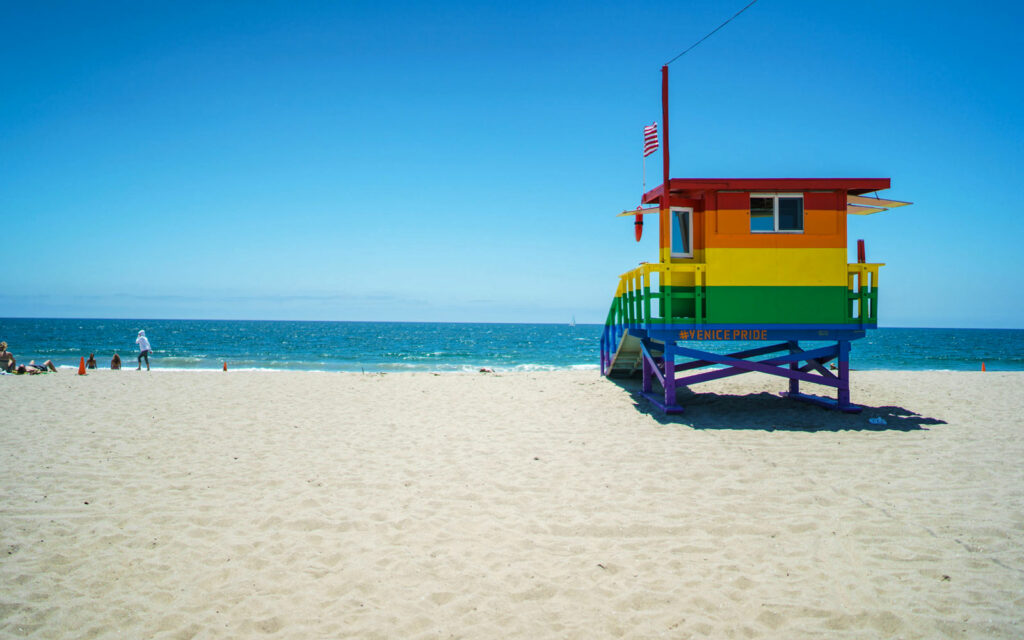“Travel is fatal to prejudice, bigotry, and narrow-mindedness, and many of our people need it sorely on these accounts. Broad, wholesome, charitable views of men and things cannot be acquired by vegetating in one little corner of the earth all one’s lifetime.”
Since I started living abroad some 18 years ago, traveling has become a big part of my life and I can really relate to this quote from Mark Twain. Traveling is inherently linked with broadening one’s horizons and increasing openness, two values that are also very important within the LGBTQI+ community.
LGBTQI+ people do travel and the travel industry slowly started to focus on the specific needs and expectations of LGBTQI+ people. However, if there is a will for touristic destinations to attract this “segment” of the population, one can wonder if the whole community can be considered as a target for marketing. Does something such as LGBTQI+ tourism even exist?
LGBTQI+ tourism is not really a thing
In 2018, a report the European Travel Commission, the European federation of national tourism associations, stated that “the LGBTQ segment can be more accurately described as a ‘segment of segments’, or a ‘segment of tribes’. It should not be considered as one homogeneous bloc.” If our community is united around a vision when it comes to defending our rights, it becomes very diverse when considered from the angle of tourism. Indeed, the L, the G or the T and all the other letters of the acronym do not have the same perspective, the same issues nor the same means when it comes to traveling.
If we take a look at the T, we quickly come to the conclusion that transgender people face specific issues as soon as they wish to travel, especially those transitioning. Going through airport security with its body scans revealing the body, its pat-down searches and its ID checks can be challenging enough to discourage trans people to travel. To address this issue, the Transport Security Administration of the USA has a dedicated info page on its website for transgender people. Yet, airport security may be only the first hassle in the trip. Hiring a car or booking a hotel room can all be challenging experiences for transgender people.
When looking at the L and G, lesbian and gay people, a study from New York University from 2019 on LGBTQI+ tourism shows that gay men and lesbian women have very different expectations, motivations and interests to travel. Also, gay men tend to have a higher spending power than lesbian women so that they travel more often and spend more. The G tourism and L tourism answer to different logic and different capabilities.
Hence, there is no such thing as LGBTQI+ tourism. Over the last decades, we can say that a G tourism have strongly developed, with more dedicated travel agencies and services catering to gay men, such as Misterbnb, the gay version of Airbnb. It even got a specific name coined for it : gaycation. An L tourism also started to gain momentum. But those two are different. This is why marketing services and destinations will not actually target the community as a whole but focus more on one specific audience within the community.
LGBTQI+ people who travel: safety first
If there is no LGBTQI+ tourism per se, there are nevertheless some common aspects to LGBTQI+ people who travel. The main one is the focus shared by all queer people regarding the openness and safety of their potential touristic destinations. The NYU study I already referred to points out that 75% of LGBTQI+ respondents find it very important to check the level of openness towards LGBTQI+ people when deciding on a travel destination. This is the most important parameter for them when selecting a destination, before the culture experience offered or the scenic beauty to discover (respectively 50 and 60%).
The European Travel Commission hence concluded that “engaging with the LGBTQ segment is, in essence, about creating a safe and welcoming environment for LGBTQ travelers and communicating it with understanding and respect.” More than direct marketing on aspects such as parties, art or nature, safety and inclusiveness are the key factors that will make a destination one praised by LGBTQI+ people.
In that sense, a focus on LGBTQI+ people from a touristic point of view should be translated into actions in order to improve and extend inclusiveness and openness locally. Training the staff of hotels and restaurants to be more sensitive to the needs of LGBTQI+ people or making sure the museums, sights and touristic activities take into account an LGBTQI+ perspective are examples of what can be done in order to really make a destination LGBTQI+ friendly on the long run.
Beyond the organisation of big LGBTQI+ events such as the Pride, the more a place becomes inclusive as a whole and the more efforts it will make to acknowledge the diversity of its potential tourists, the easier it will be for LGBTQI+ people to consider it a travel destination.
Listen to KET Talks Podcast now on Spotify, YouTube, IGTV, Deezer and Apple Podcasts! Enjoy this seventh episode of the Brussels queer podcast and feel free to give us your feedback on Facebook and Instagram.
You may also like
-

Laetitia BICA : If there’s nothing at stake, why play?
Driven by her Sicilian roots and passion for photography, Laetitia BICA challenges industry norms through
-

LGA-Europe’s Equality Fundraiser Gala in Brussels
On July 4th, ILGA-Europe hosted their Equality Fundraiser 2024 in the Brussels Region, drawing around
-

Guggenheim Bilbao: A Beacon Of Inclusion With Queer Destinations Certification
The Guggenheim Museum Bilbao is breaking new ground as the first international museum to receive
-

Grindr Used to Trick Gay Men in Western Brussels
A Surge of Homophobic Ambushes Source: Le Soir In the latter half of June, western
-

A Celebration of Courage: Chille Deman Receives Citizen Medal from the City of Brussels
In a heartwarming ceremony held on May 17th, the International Day Against Homophobia, the City
